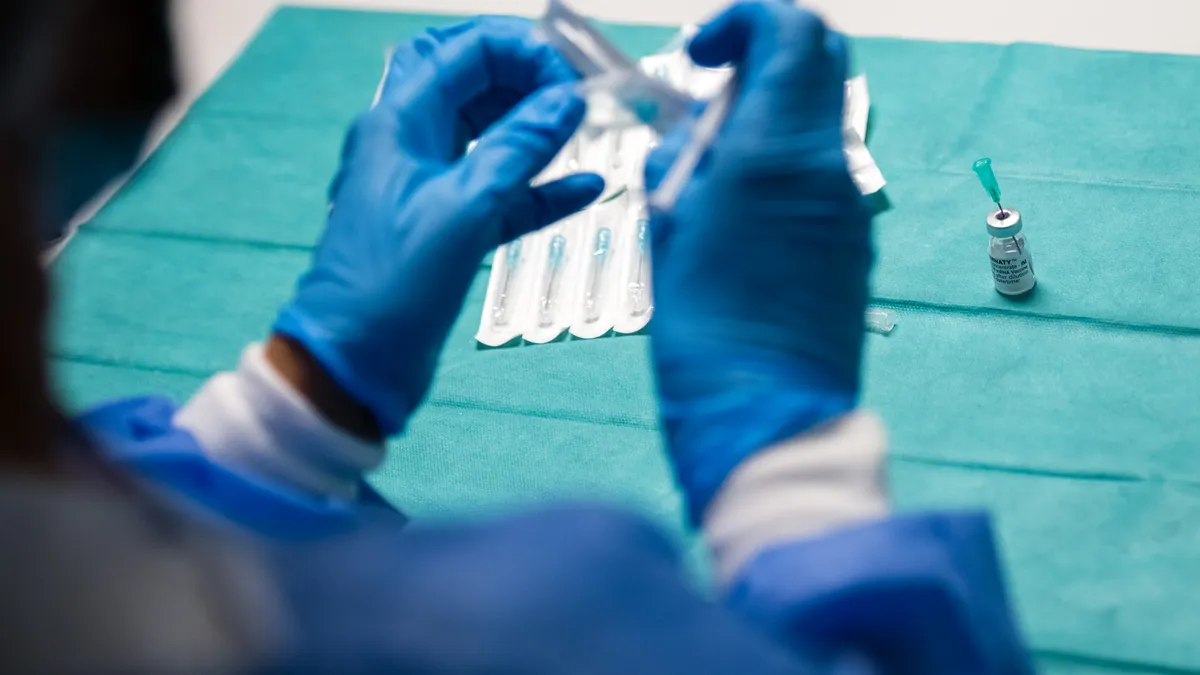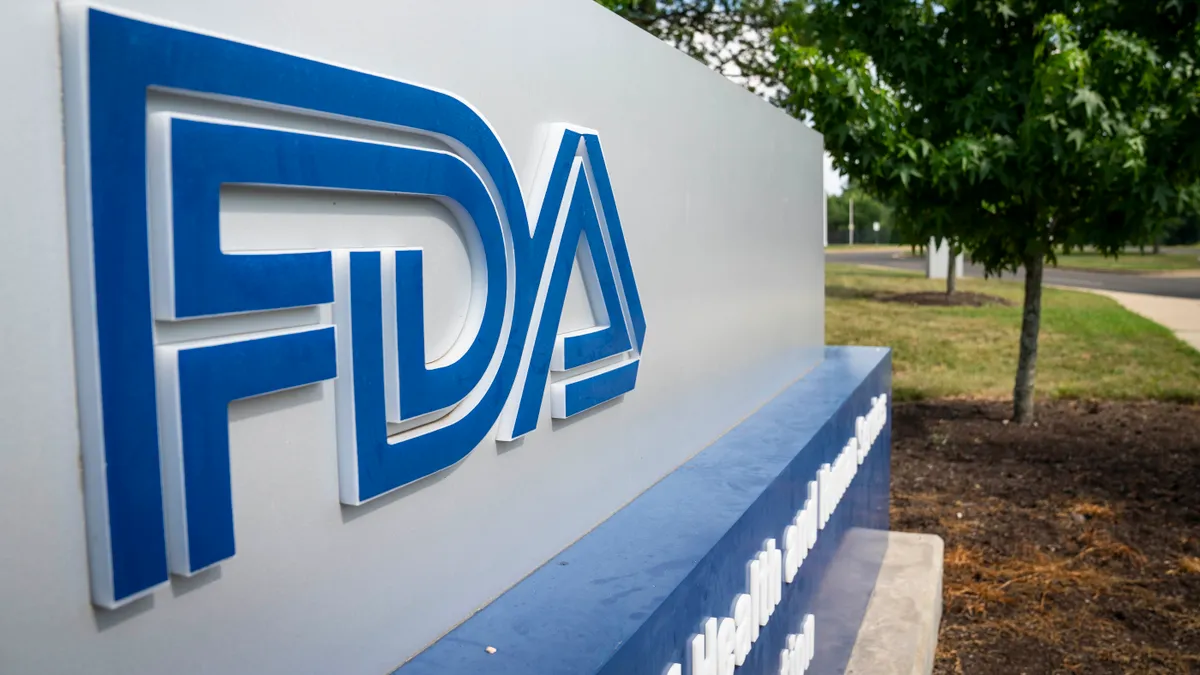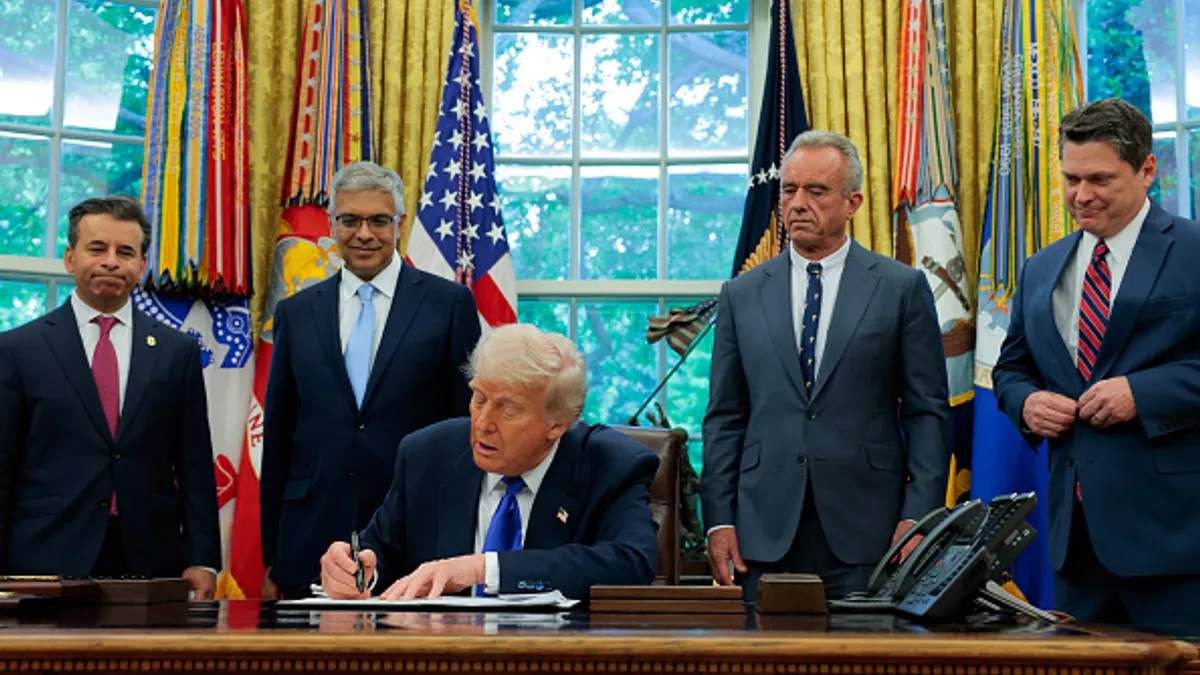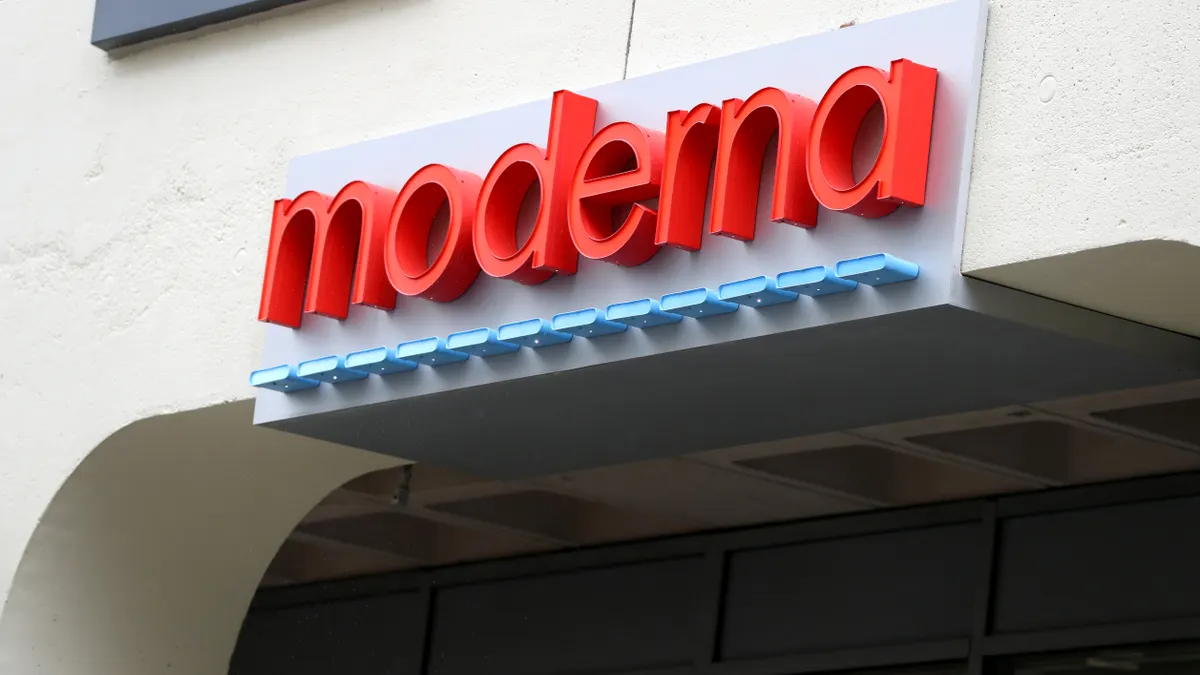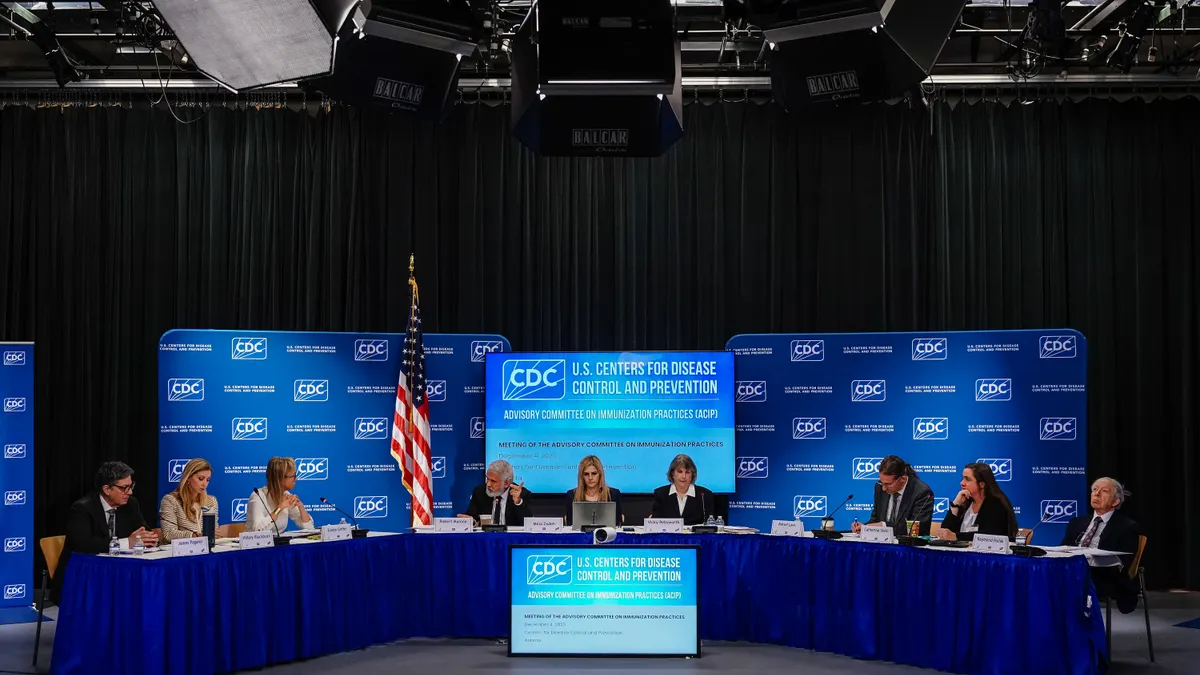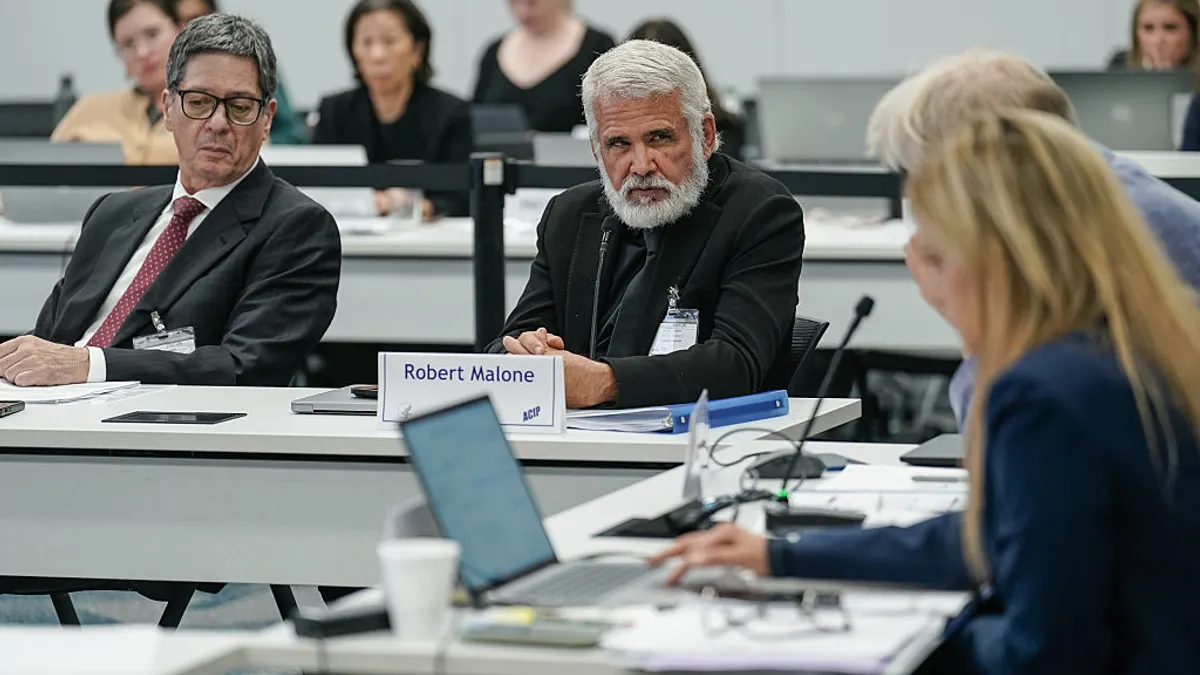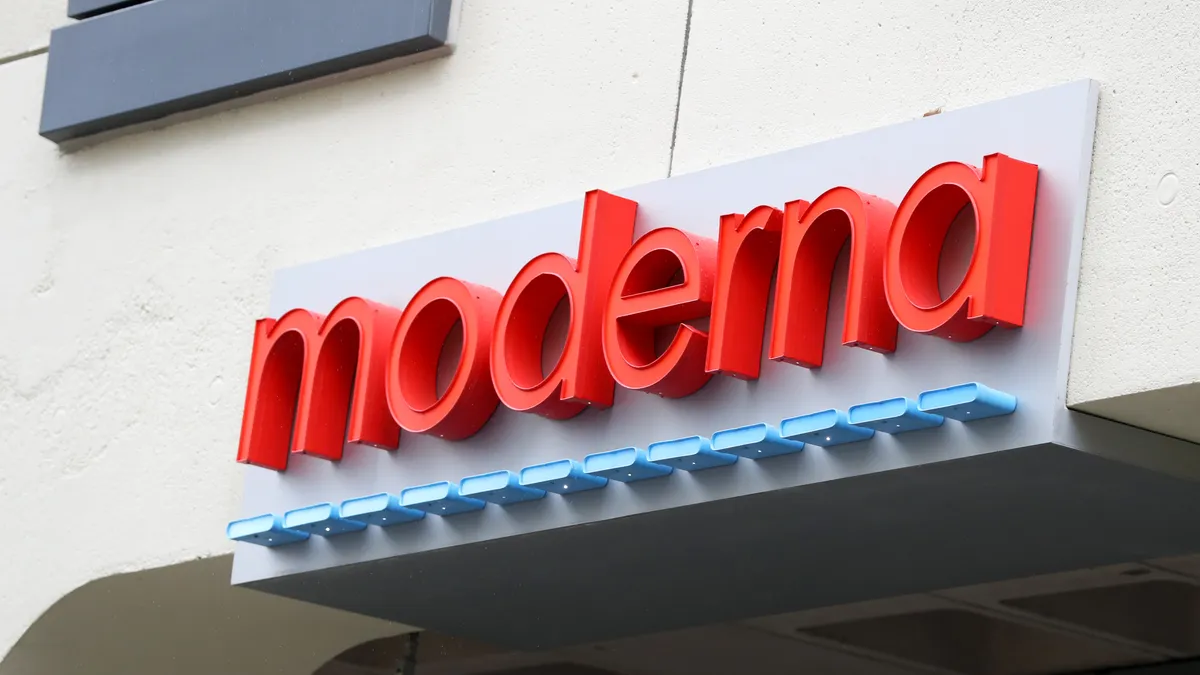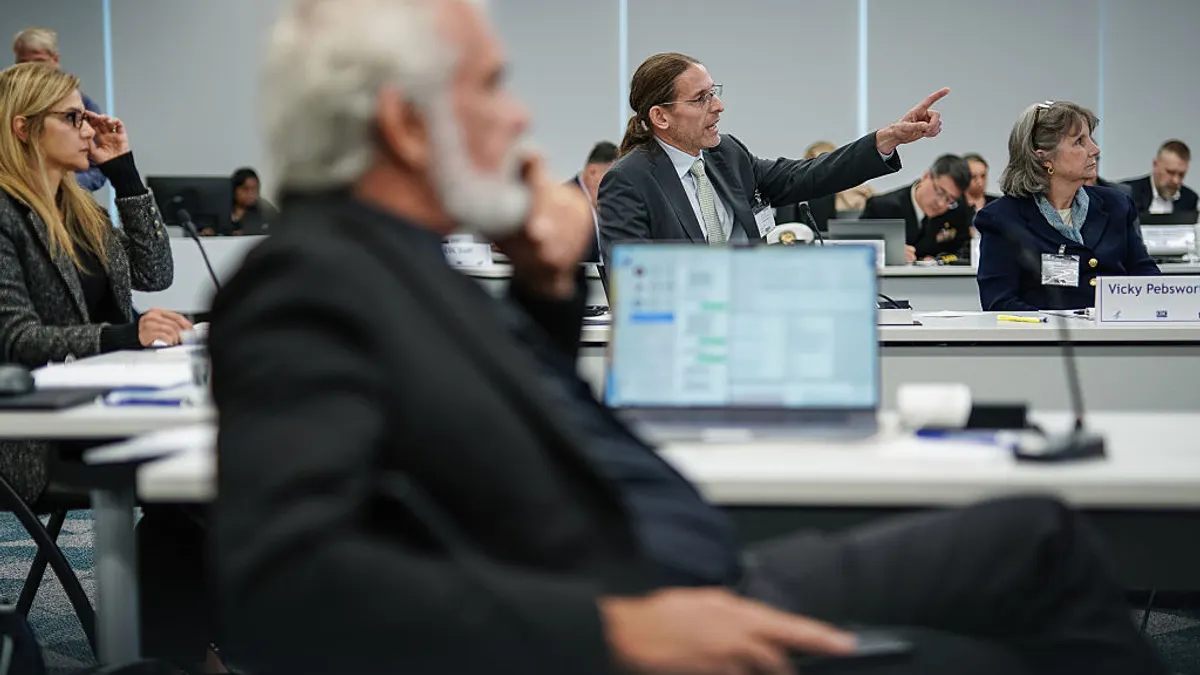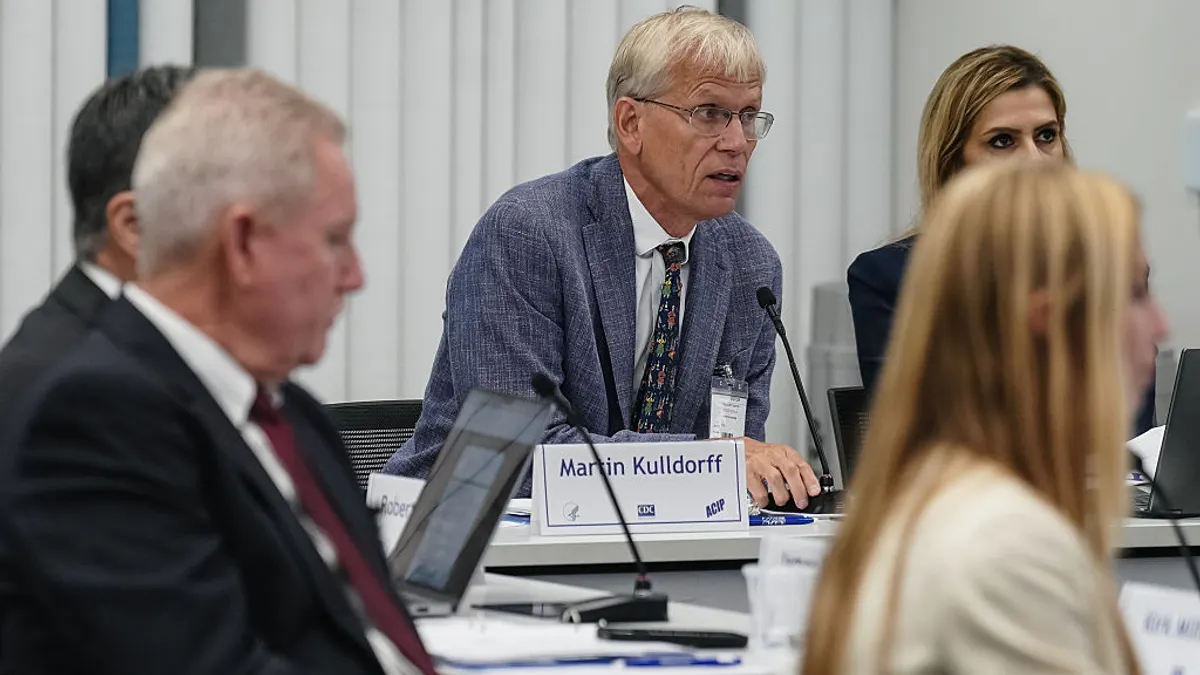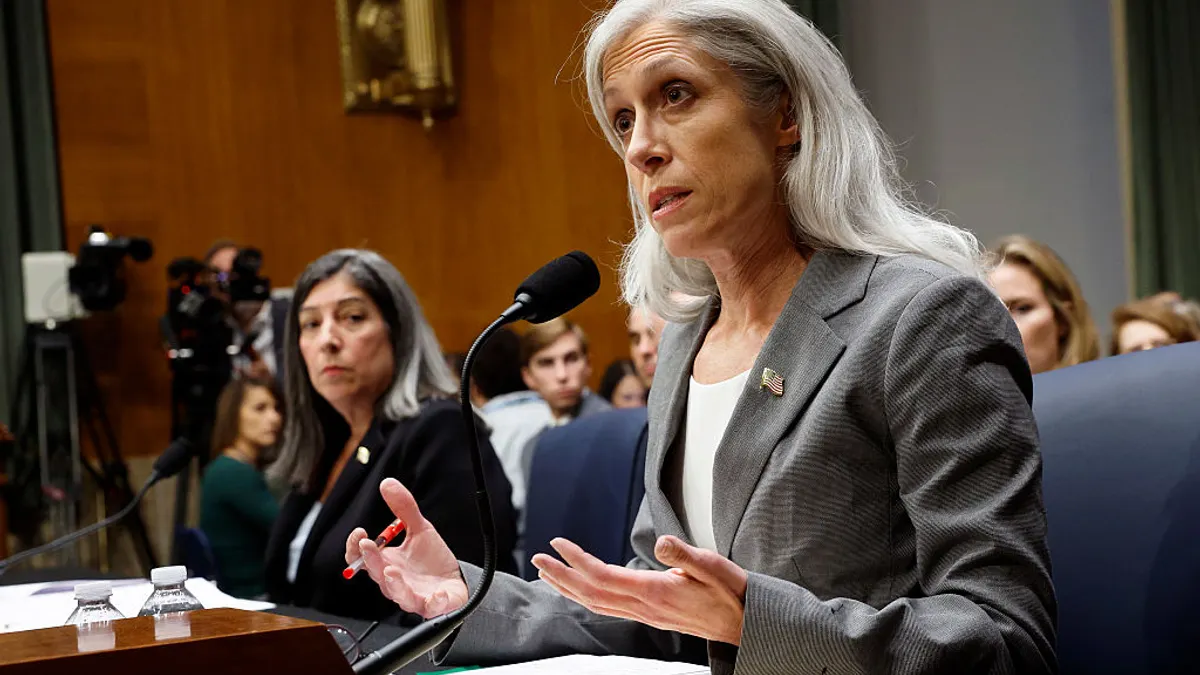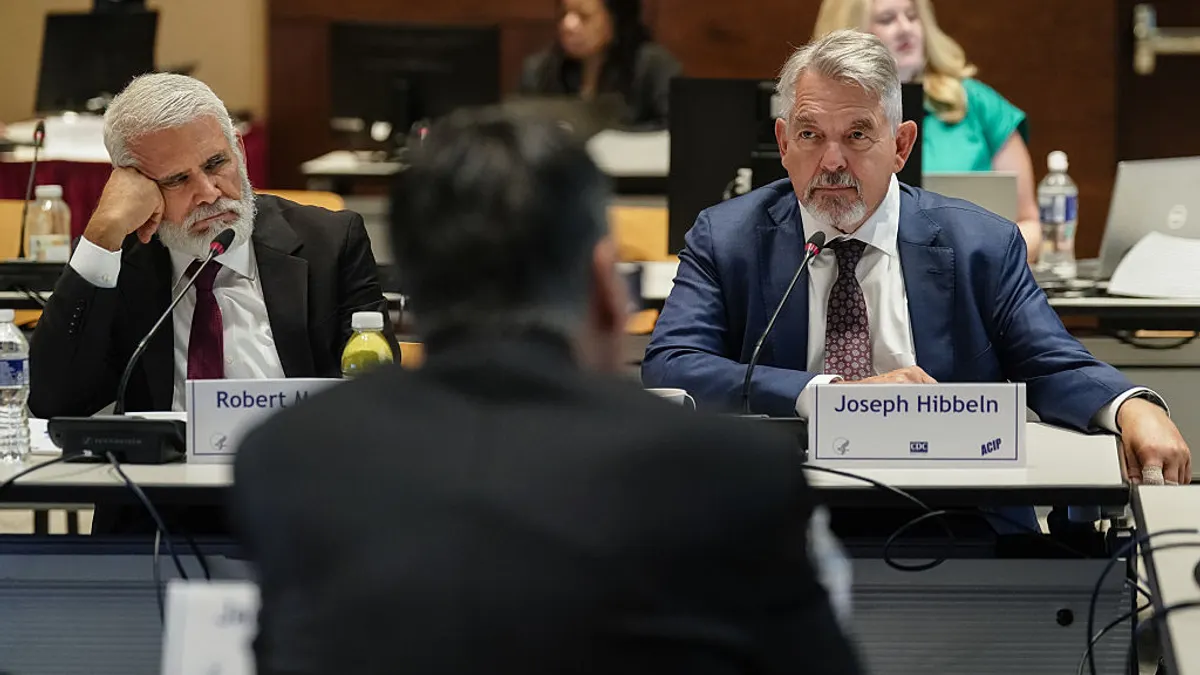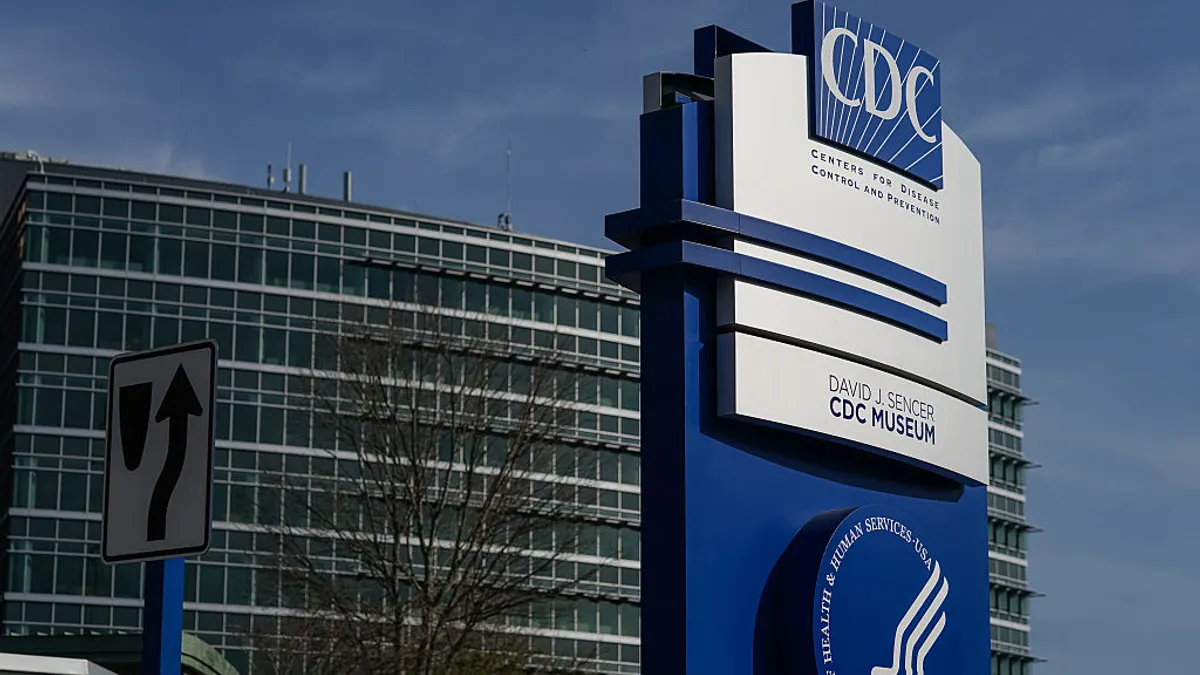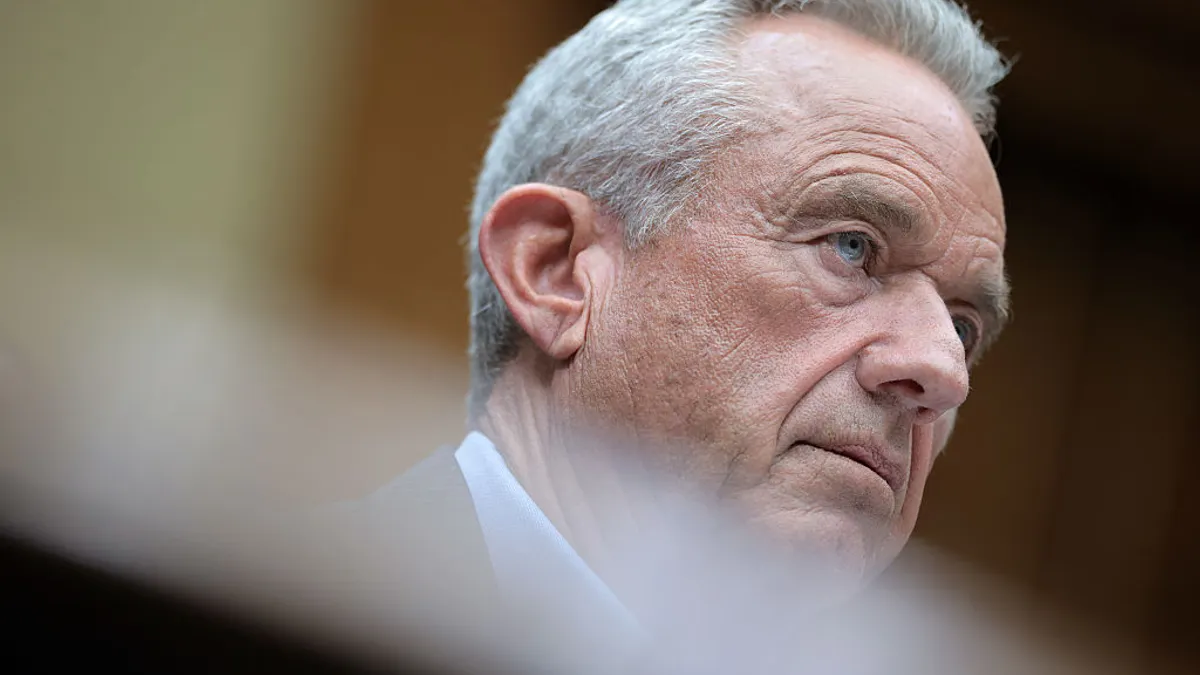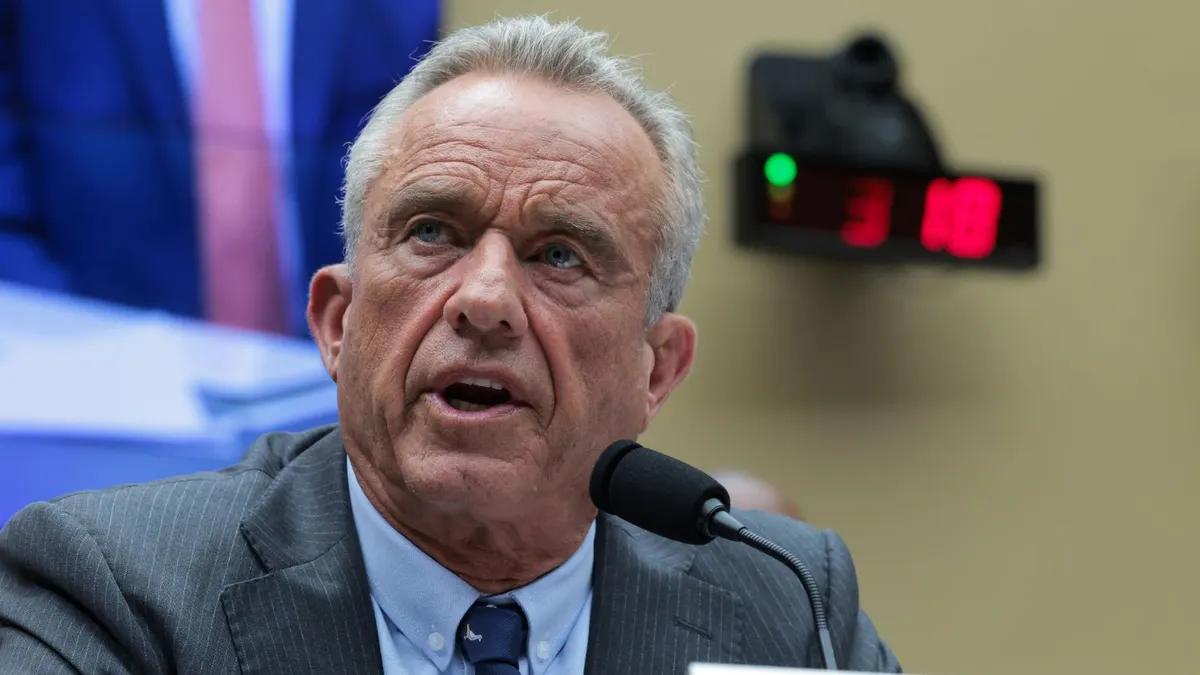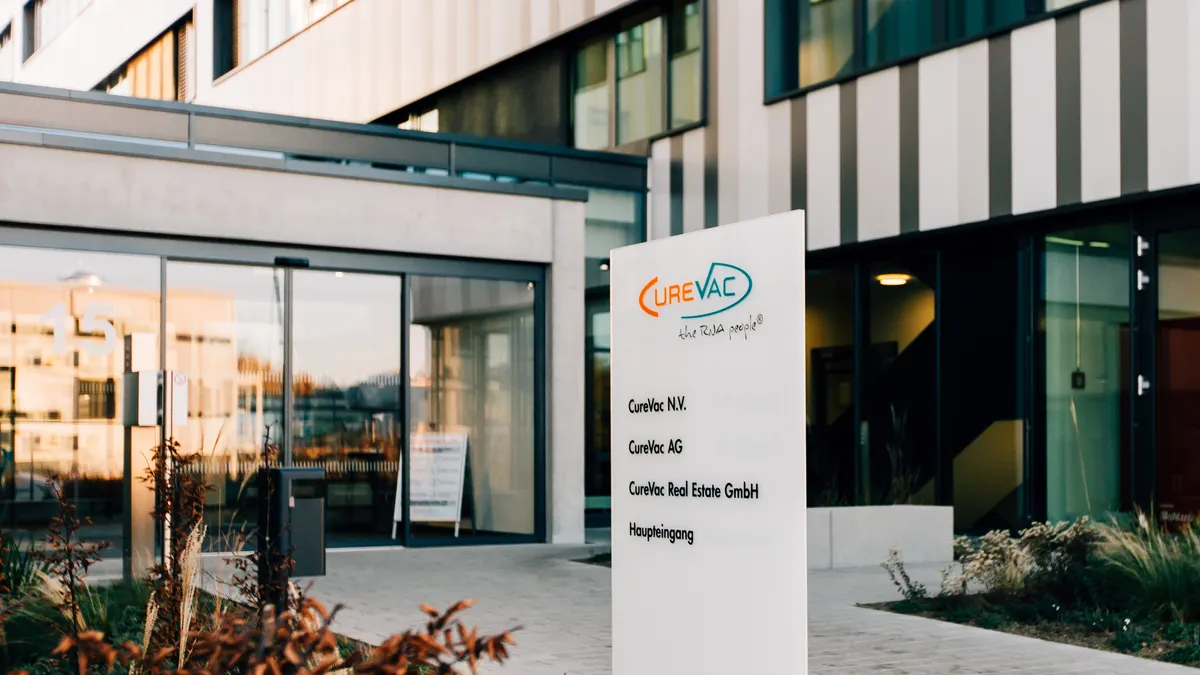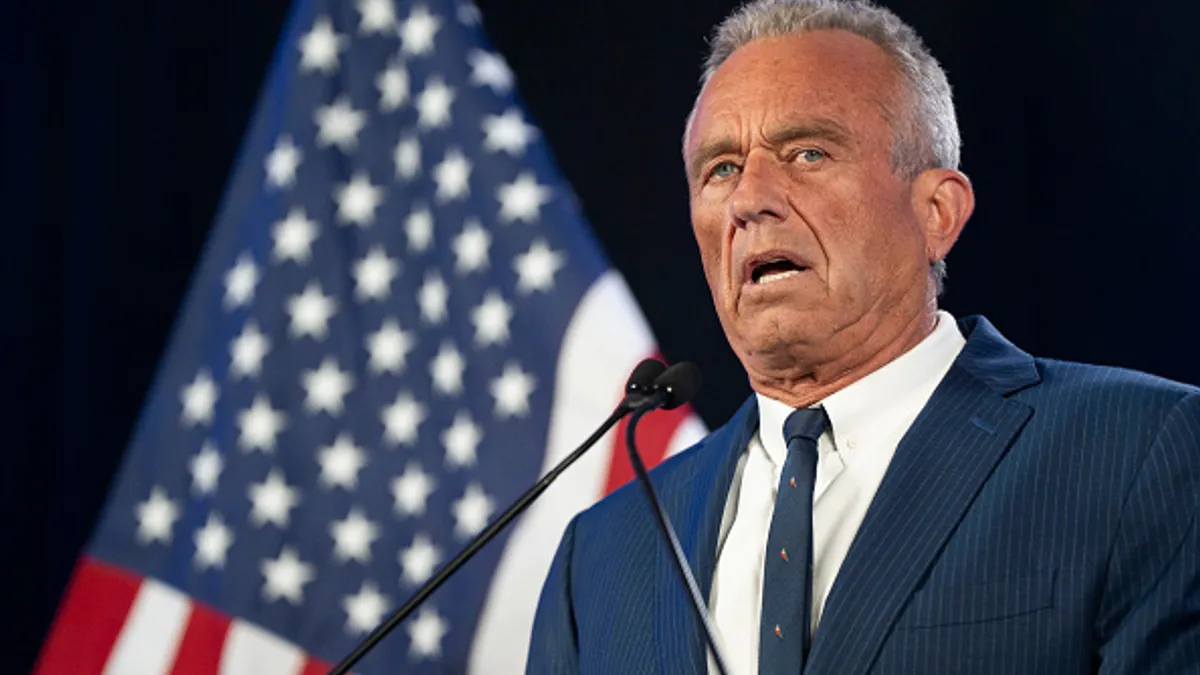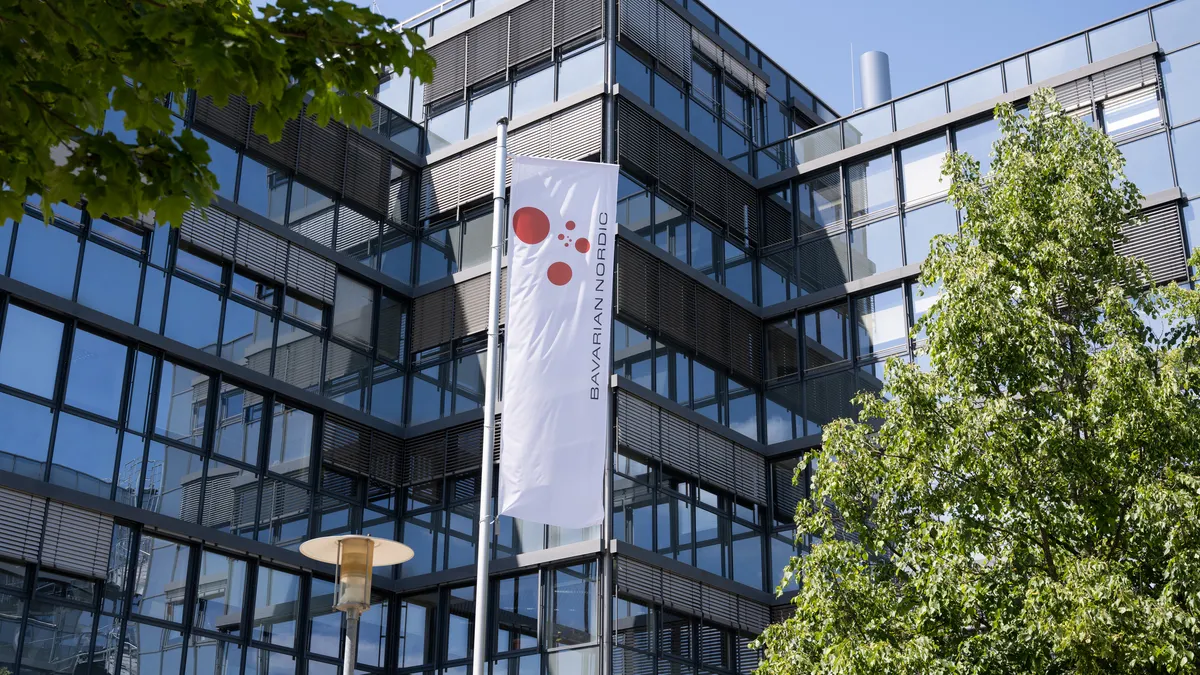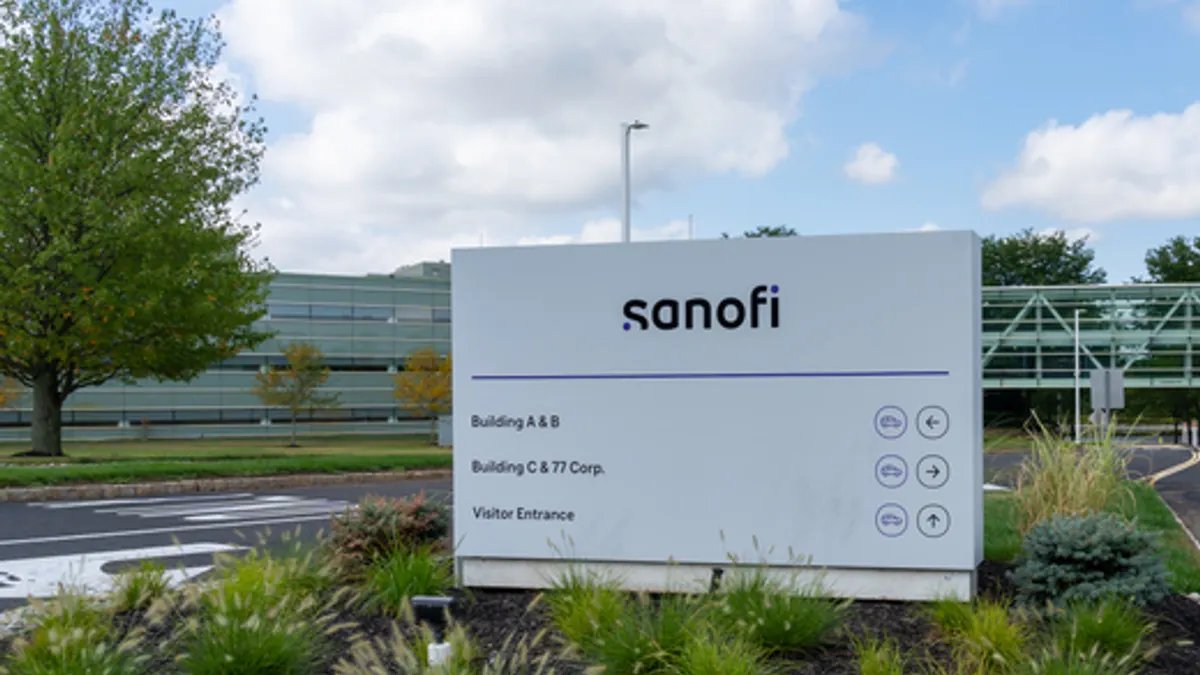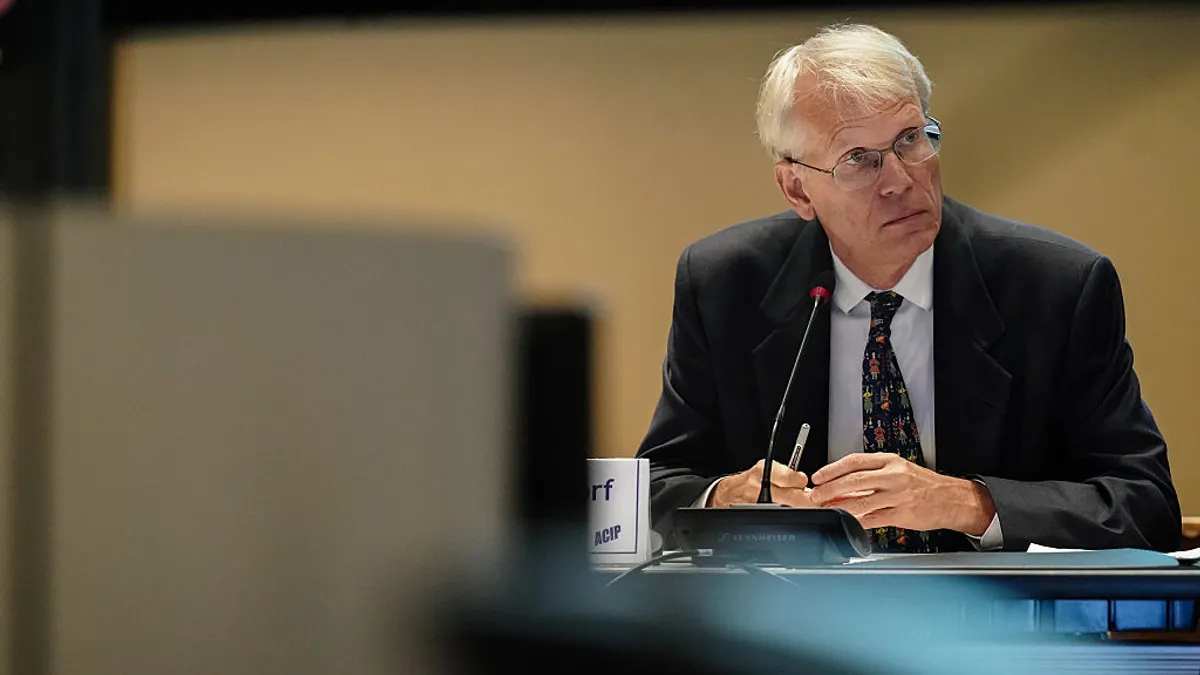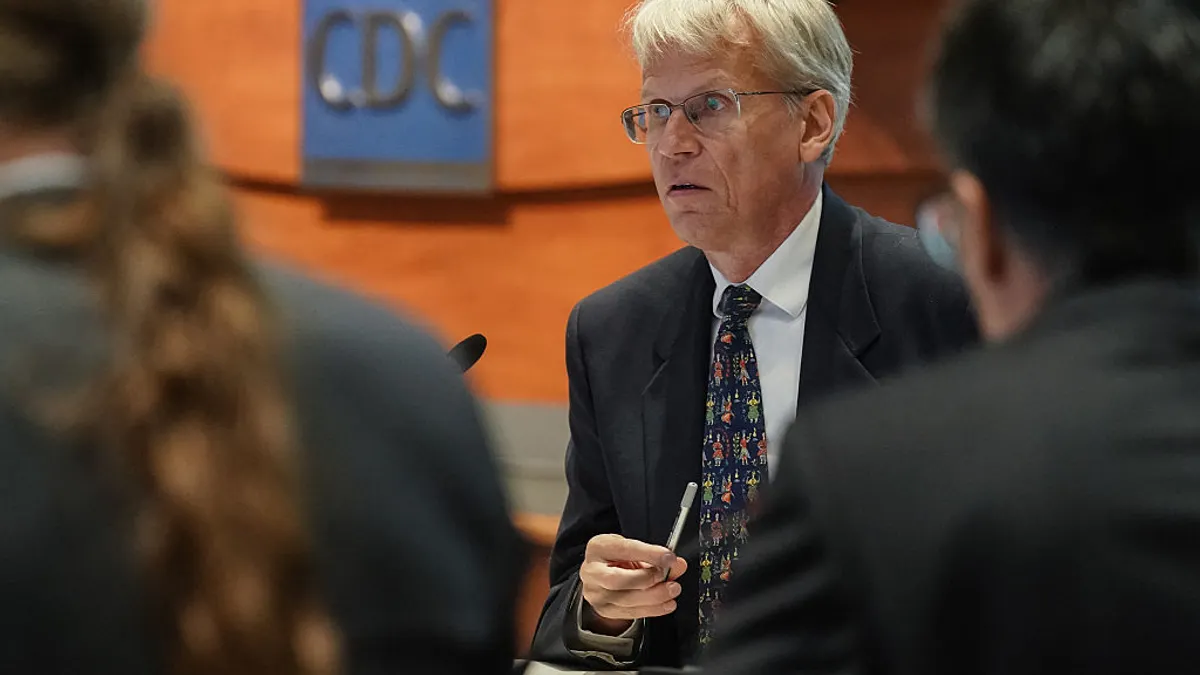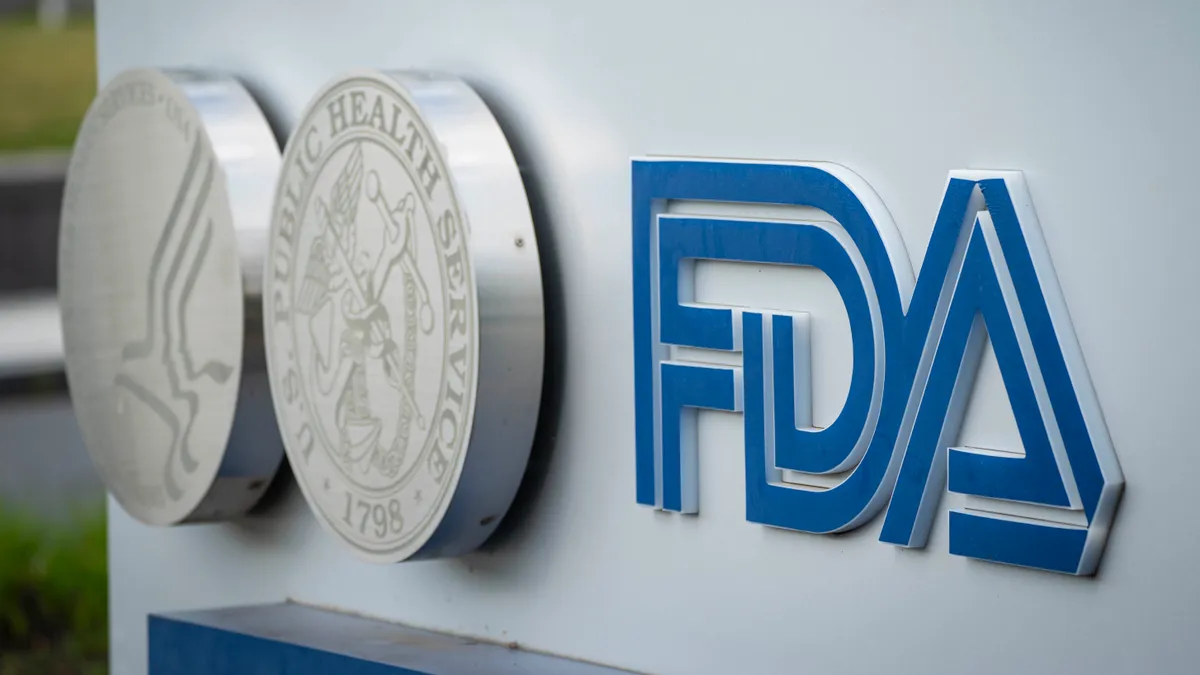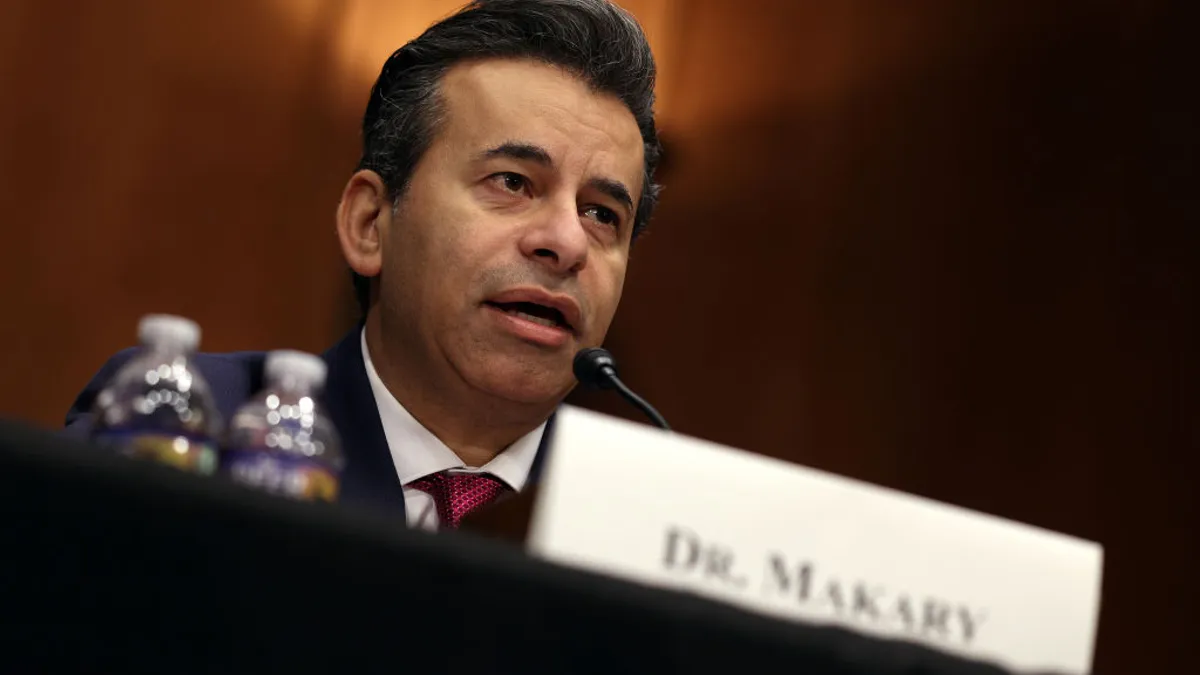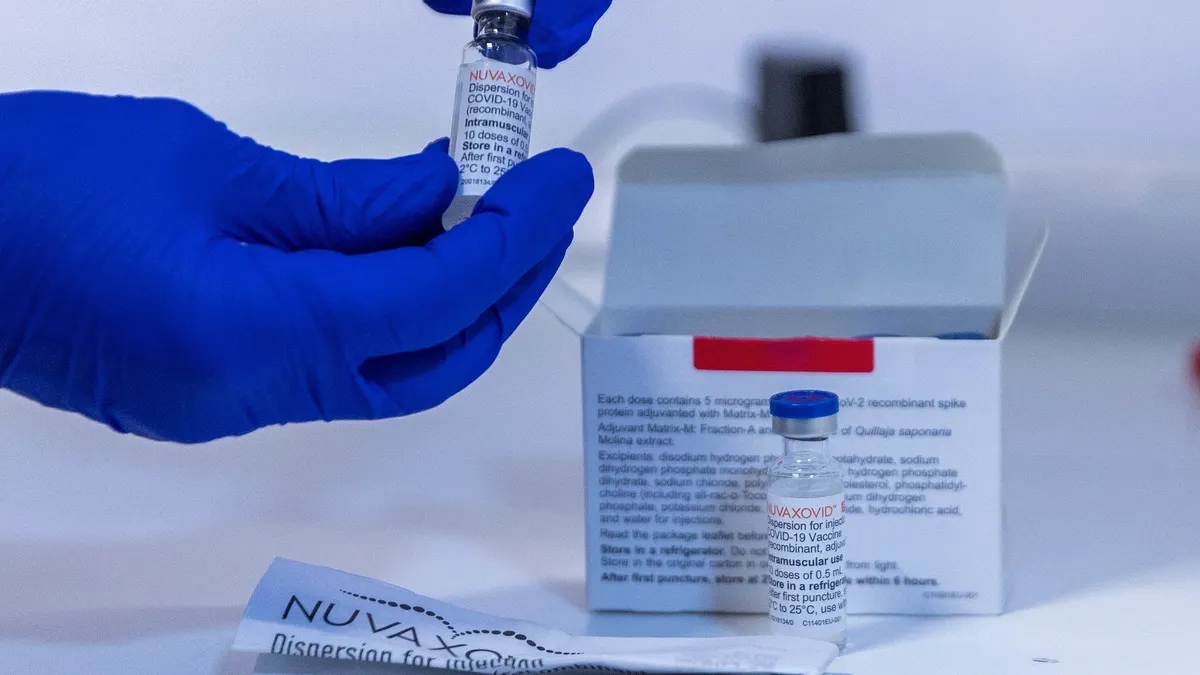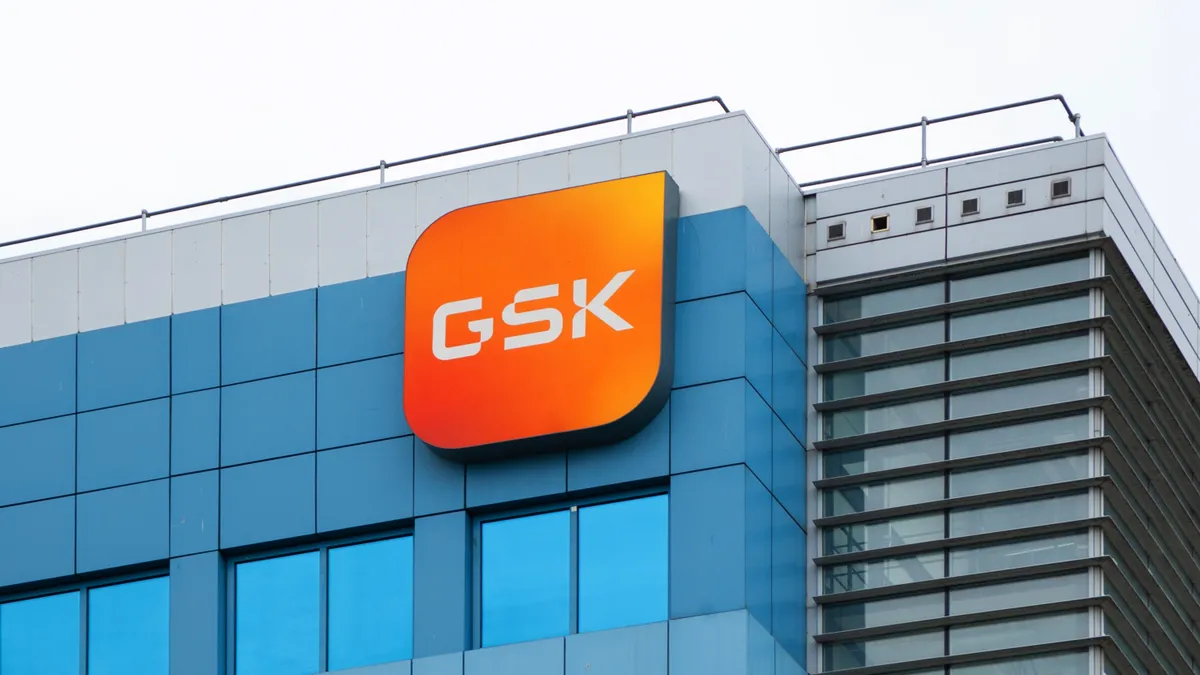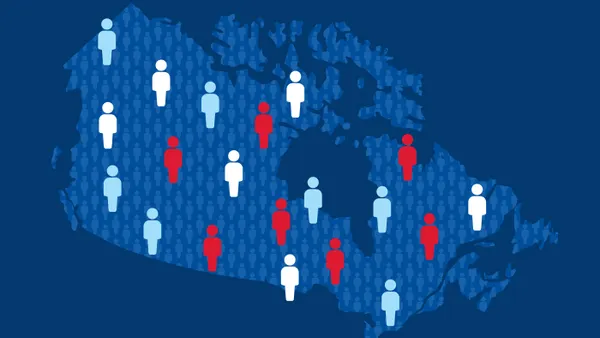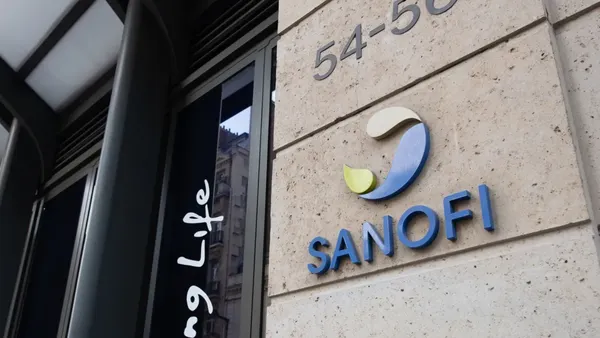Dive Brief:
- Pfizer and partner BioNTech said Monday their updated COVID-19 booster spurred strong immune responses against currently circulating coronavirus strains in late-stage testing, adding a key piece of evidence in support of the recently approved shot.
- According to Pfizer and BioNTech, the booster led to at least a four-fold increase in levels of LP.8.1-neutralizing antibody titers in a study cohort of people either over 65 or who are between 18 and 64 and have an underlying health condition. No new safety concerns were identified.
- The two companies ran the study to provide to the Food and Drug Administration additional information about the vaccine’s immunological impact. The results have been submitted to the agency, they said.
Dive Insight:
Pfizer and BioNTech’s announcement comes roughly a week after President Donald Trump called for COVID vaccine and drug developers to make their results public, despite the availability of results from dozens and dozens of studies supporting their safety and effectiveness.
Pfizer, Novavax and Moderna have all responded, though, publishing press releases with links to their data. Pfizer even added a nod to President Trump’s Operation Warp Speed initiative under which its vaccine was originally developed, claiming the program’s success is worthy of a Nobel Peace Prize.
Yet all three developers will promote their new shots at a time when they’ll be harder to access than ever before. Under the leadership of Health and Human Services Secretary Robert F. Kennedy Jr., who in his short tenure has moved quickly to act on his anti-vaccine views, the federal government has substantially narrowed eligibility for COVID shots, compared to previous years.
Those changes came up in a contentious Congressional hearing last week, during which Kennedy faced criticism from lawmakers of both parties over moves he’s made to upend vaccine policy and defund mRNA vaccine research.
Kennedy has falsely claimed mRNA vaccines aren’t effective, and earlier this year said the CDC would no longer recommend the shots for healthy children and pregnant women. Several experts and medical organizations have pushed back against his claims, however, and the American Academy of Pediatrics recently laid out its own childhood vaccination guidelines. Some states have begun creating their own vaccine policies in response.
Still, federal vaccine policy could again change in the coming weeks. The CDC’s vaccine panel, which Kennedy remade earlier this year, is scheduled to meet on Sept. 18 and 19, during which they’ll discuss vaccines against COVID, hepatitis B and measles.



